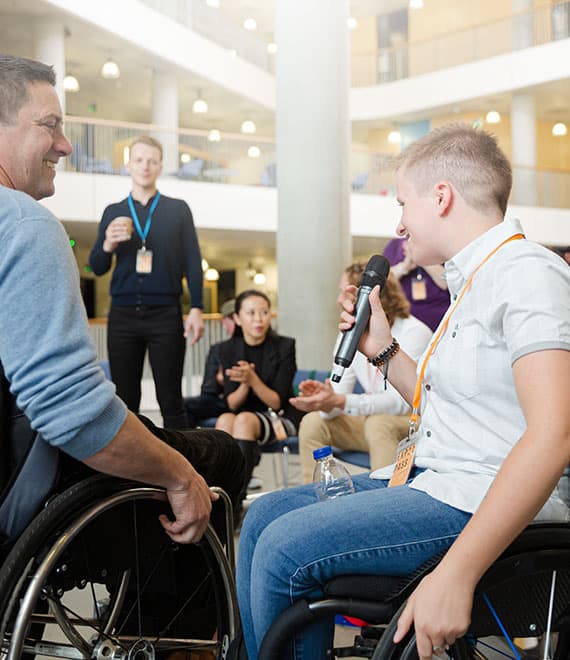
We delivered a variety of leadership and management programmes to support stakeholders in their effort to drive a UN management culture that fully supports the implementation of the 2030 Agenda.
As leaders support teams and organizations to move more effectively towards recovery from the
COVID-19 pandemic, a set of leadership programmes were delivered to advance a collective
understanding of principled, accountable, inclusive, and transformational leadership, as
outlined in the


Equity and inclusion have been important components of COVID-19 emergency responses. Going forward, they will be crucial for our collective recovery planning and efforts. To bend the curve of thinking and behaviour on gender equality, diversity, and inclusion, UNSSC has supported multiple stakeholders through two flagship learning programmes, and two college-wide thought leadership events.
Our flagship
The first edition of the
Innovation, data analytics, and operational excellence are critical levers to ensure sustainable and inclusive recovery efforts.
To create awareness and advance knowledge on innovation, in 2021 the Staff College continued
its efforts to mainstream the
Data will continue to transform the way the UN organizes, strategizes, and operates. Keeping
pace with and effectively applying innovative initiatives and data technologies will depend
on operational excellence and the ability to simplify processes. In line with this, the
Staff College continued to deliver the
To play a role in shaping recovery efforts, UN entities and the UN system as a whole will
need sustained leadership rooted in a cohesive leadership culture and change management
practices. To further support this, the Staff College implemented and re-scoped a set of
learning initiatives, including
Like all the College’s leadership and management development programmes, the Blue Line and the UN Leaders programme are aligned to the UN System Leadership Framework (UNLSF). The framework outlines what a UN leadership culture aligned with Agenda 2030 should consist of and how it should look.
In 2021,
With change and recovery efforts happening at an unprecedented pace, UNSSC’s 2021
People-centred recovery strategies cannot be strengthened without good management and
leadership. Managers and staff throughout the UN system need professional competencies to
successfully contribute to pandemic recovery efforts. In 2021, the Staff College offered
unique learning programmes that were designed to equip UN staff with updated skills in areas
like change management, communication, adaptive leadership, emotional intelligence. Our
The mental health challenges that have been exacerbated by the pandemic call for a new type
of UN leadership, where leaders create workplace environments where staff feel
psychologically safe. Through our newly launched
Tapping into the research and teaching capabilities of leading academic institutions in order to provide better learning outcomes for the UNSSC community, the Staff College advanced a number of academic partnerships in 2021. Collaborations centered around curriculum design with IE University and the National University of Singapore’s Lee Kuan Yew School of Public Policy.
UNSSC leveraged its partnership with IE University to develop a new curriculum on the “Fundamentals of Data Analytics in the UN context” which enables UN professionals to strengthen their ability to access, use, interpret and communicate data. To support UN staff to embrace diversity and inclusion in the workplace, UNSSC partnered with the National University of Singapore’s Lee Kuan Yew School of Public Policy to create and deliver a course on “Diversity and Cultural Intelligence Skills for Results”. The course is designed to help participants increase their cultural sensitivity and awareness, enabling them to work, interact, and communicate in diverse work environments, as well as build relationships with people from different cultural and ethnic backgrounds, and mitigate cross-cultural challenges.